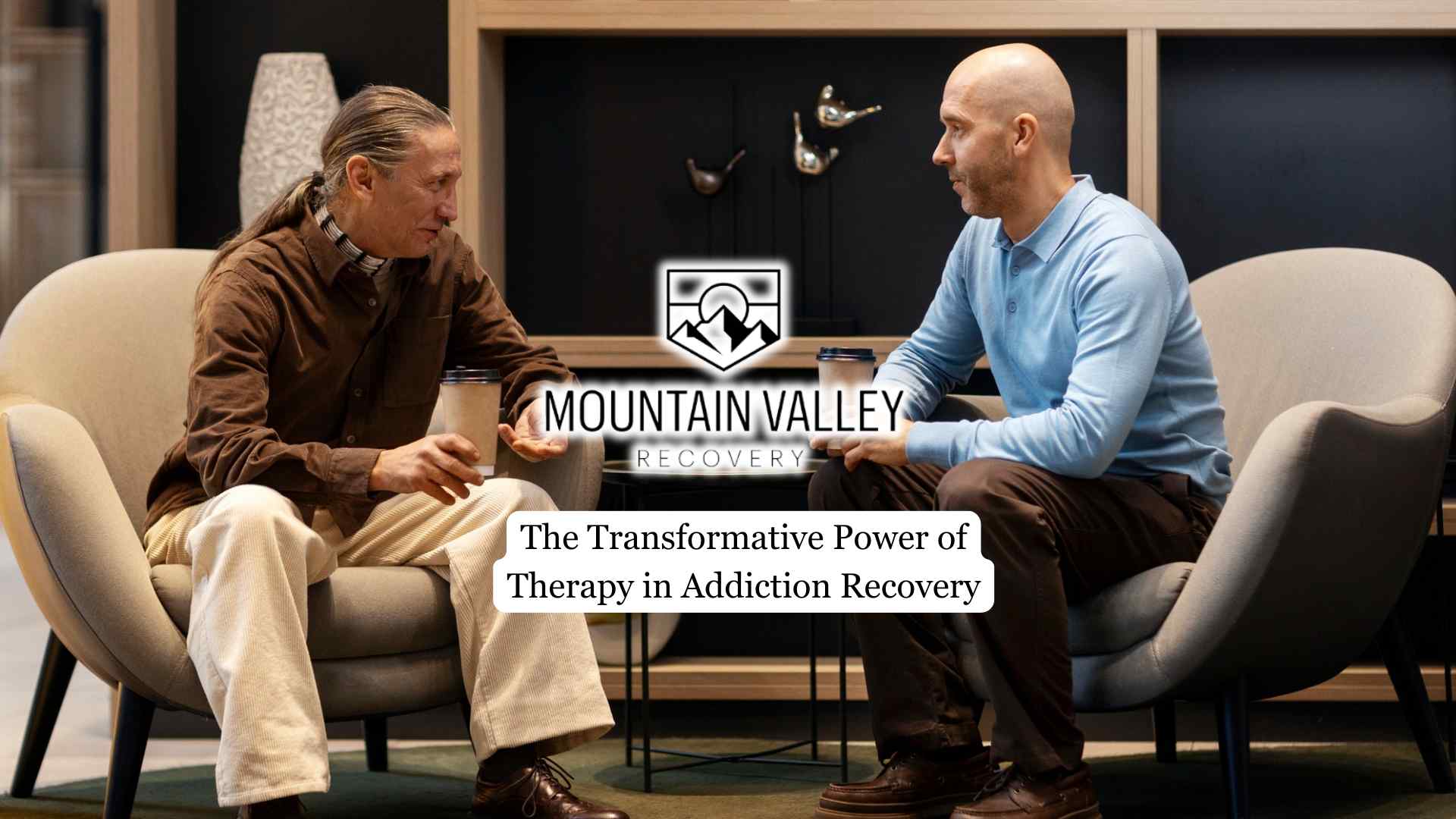Addiction is frequently misunderstood, perceived solely as a personal shortcoming or a lack of self-control. However, it is a complex and multifaceted condition that impacts millions globally, interweaving biological, psychological, and social factors. Through various therapeutic approaches, ranging from Cognitive Behavioral Therapy to mindfulness practices, individuals in recovery can unearth deep-seated emotions, heal past traumas, and cultivate healthier relationships with themselves and others.
In this article, we will review the transformative power of therapy in addiction recovery, examining how it assists in breaking the cycle of addiction.
The Role of Therapy in Addiction Recovery
Addiction is frequently misunderstood as simply a lack of self-control, but it is a multifaceted condition that interweaves mental, emotional, and physical health challenges. Successful therapy tackles these complex issues by identifying the underlying causes of addiction, which often include unresolved trauma, mental health disorders, and unhealthy coping mechanisms.
One of the key advantages of therapy is its capacity to create a safe and supportive space where individuals can explore their emotions and experiences without fear of judgment. This therapeutic environment empowers clients to face their triggers and develop healthier coping strategies to handle stress and cravings.
Techniques like Cognitive Behavioral Therapy (CBT) assist individuals in recognizing negative thought patterns and replacing them with constructive behaviors, ultimately cultivating resilience against relapse.
Our men’s rehab, Mountain Valley Recovery, has integrated therapy as the cornerstone of our Inpatient addiction treatment program in Utah, providing you with the tools, support, and guidance necessary to build a strong foundation for lasting sobriety.
Addressing Underlying Issues
Many people use drugs or alcohol as a way to deal with deep emotional pain or traumatic experiences from their past. This often leads to addiction, which can be very hard to overcome.
Trauma can arise from a variety of experiences, including violence, abuse, neglect, or significant life events. For many individuals grappling with addiction, these traumatic experiences can lead to feelings of helplessness and emotional distress. Consequently, substances may be used as a means to numb these painful emotions or escape from reality.
Therapy provides a safe environment for individuals to confront and process their trauma, enabling them to understand how these past experiences influence their current behaviors and choices.
Techniques such as Eye Movement Desensitization and Reprocessing (EMDR) are particularly effective in helping clients reprocess traumatic memories, allowing them to reduce the emotional charge associated with these events and break free from the cycle of addiction.
Learn more about the issues men’s rehabs usually face when dealing with dual diagnosis cases.

Developing Coping Skills
Therapy plays a crucial role in helping individuals develop effective coping skills that enable them to manage cravings and stress without resorting to substances. These skills are vital for maintaining sobriety and promoting overall emotional well-being. Through various therapeutic approaches, clients learn practical strategies that empower them to navigate life’s challenges in healthier ways.
One of the first steps in therapy is identifying triggers—specific situations, emotions, or environments that provoke cravings for substances. Cognitive Behavioral Therapy (CBT) is particularly effective in this regard, as it teaches individuals to recognize and understand their triggers. Therapy also introduces various relaxation techniques that help individuals cope with stress and anxiety, which are often precursors to substance use.
Effective communication skills are another critical component of therapy that aids in managing cravings and stress. Individuals learn how to express their feelings and needs assertively without resorting to substance use as a means of escape.
Promoting Self-Discovery and Growth
One of the key advantages of therapy is the improvement of self-awareness. Through guided introspection and exploration, people learn to recognize their thoughts, emotions, and behaviors more clearly. This process often involves examining the underlying beliefs that influence their actions, many of which may have been developed during childhood or as a response to past trauma.
By identifying these patterns, clients can start to understand how their addiction functions as a coping mechanism for deeper emotional challenges. For instance, a person might realize that their substance use is connected to feelings of inadequacy or fear of rejection. This awareness enables them to address these feelings directly rather than covering them up with substances.
As individuals gain a better understanding of their emotional landscape, they become more capable of making informed decisions that are consistent with their values and goals.
Enhancing Mental Health
Therapy addresses co-occurring disorders, recognizing that addiction often aligns with mental health challenges like depression and anxiety. By addressing these issues simultaneously, you’ll experience more effective treatment outcomes.
Therapeutic interventions promote emotional healing, allowing you to process and manage symptoms associated with mental health conditions. The transformative power of a holistic approach integrates mental health support into your recovery journey, enhancing overall emotional and psychological well-being.
Find out what are the main reasons men fail to maintain their sobriety by using drugs while on their recovery journey:
Long-Term Impact of Therapy on Recovery
Long-term therapeutic engagement empowers individuals to develop essential coping strategies, reducing the risk of relapse by up to 50% over time.
As you continue to participate in therapy, you’ll cultivate improved emotional regulation skills, enabling you to better manage co-occurring mental health disorders that often accompany substance use issues.
The supportive environment fostered in therapy, particularly through modalities like cognitive behavioral therapy (CBT), helps you build lasting relationships and a sense of community. This increased social connectedness is vital for sustained recovery, with research indicating a 40% improvement among individuals who engage in group therapy.
As you progress in your therapeutic journey, you’ll notice a significant enhancement in personal growth and self-efficacy, resulting in a 30% increase in your ability to set and achieve personal goals post-recovery.
Final Thoughts from Mountain Valley Recovery
At Mountain Valley Recovery, we recognize the distinct obstacles men encounter on their paths to recovery. Our personalized therapeutic methods are crafted to tackle the particular requirements of our clients, nurturing a setting where they can face their challenges, build resilience, and attain enduring transformation. By participating in therapeutic practices, men can break the cycle of addiction, mend past injuries, and foster healthier relationships with themselves and others.Published: 6/28/2024





